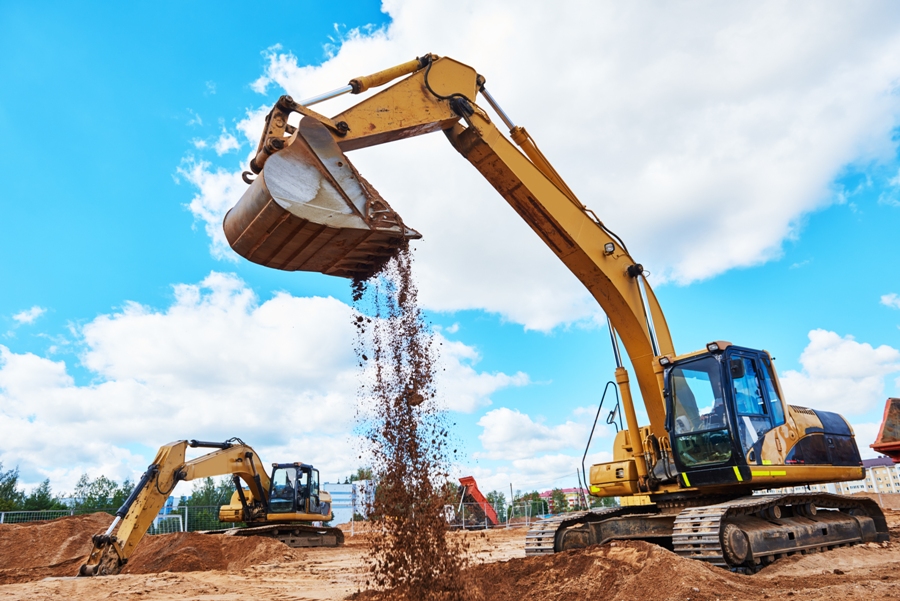- What are excavators?
An excavator is designed to do exactly as it says it does – excavate. This piece of equipment is essential to any construction project, as it can easily move on different types of terrain and turn 360 degrees while pulling loads of dirt out of the ground. Excavators can also lift things such as rocks and debris in large quantities.
Excavators are built with a hydraulic system consisting of a boom, an arm, and a bucket. They range from mini compact sizes for your backyard to large-scale machines for mining sites, demolition, or digging trenches.
- When to use an excavator
We may think of excavators as construction equipment, but they are really more than that. Excavators can be used for home DIY projects such as installing swimming pools, carrying loads to a truck or trailer, or digging trenches for landscaping. Instead of relying on manual labor, operating an excavator enables you to finish the job in the shortest possible time.
Excavators are great for:
- Digging holes in the ground
- Clearing an area for landscaping
- Pulling out large tree stumps
- Plowing snow
- Demolition of sheds and other small structures
- Repairing sewer lines
- Creating irrigation ditches
- How to choose an excavator
Terrain. Excavators typically come with tracks or with wheels. If you are going to work on a relatively flat ground, an excavator on wheels can provide you with the mobility and speed you need.
If your project is located on a steep hill or rocky area, you need an excavator with tracks for additional grip and stability on an incline.
Transportation. You need a trailer to transport an excavator to your project site. The bigger the excavator, the longer and wider the trailer required. Factor in fuel and transportation costs when choosing an excavator.
- How to safely use an excavator
Know the limits of your machine. Read the instruction manual of your excavator and always refer to the load chart. Do not go beyond the lifting capacity stated by the manufacturer. The excavator could tip over if the bucket is overloaded.
Avoid undercuts. When the bucket of an excavator digs soil under its tracks, it increases the possibility of the ground caving in. This is called an undercut, and it should be avoided at all costs.
Work area should be off limits. No one should be allowed in the trench or under the bucket while the excavator is in use. Crew members should be aware of the arm’s range of motion and stay clear of it.
Practice work safety. Before operating an excavator, make sure that you are protected with a helmet and safety shoes. Check your local government website for safety laws in your state.
- What you should know before renting an excavator
Proper training. If you prefer to do the job yourself instead of hiring a specialist, then you should take a short course on how to operate an excavator. Heavy construction equipment can be dangerous when not used properly.
Experience. When hiring an excavator operator, experience should be first on your list. Ensure that the person you call is familiar with the nature and size of your project.
Equipment. Check if the equipment rental company you are hiring from has an updated fleet. Choose an excavation contractor that uses the latest technology and maintains its equipment properly.
Time. Make a plan and follow your schedule accordingly. All construction projects must be completed within a specific time period in order to stay within the budget.
Cost. When asking for a quote from an equipment rental company, describe your project in detail. Make sure that the deal includes all kinds of taxes so there are no surprises down the line.
For major construction projects, hiring a contractor is a must. But for a simple landscaping project, it is more practical to rent a mini excavator from an equipment rental company. Learn some basic excavating skills and always read the manual before operating any machine.
Written by Lindsey Rentals. Lindsey Rentals offers the best equipment rentals in Columbia, MO.
















